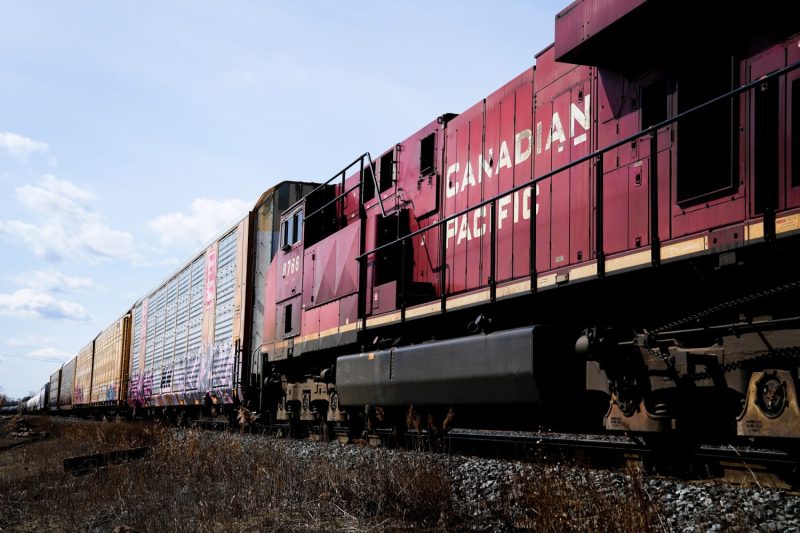The possible work stoppage at Canada’s two largest railroads, Canadian National Railway Co. (CN) and Canadian Pacific Railway Ltd. (CP), has raised concerns about potential disruptions to the U.S. supply chain. The impact of such a scenario could have far-reaching consequences for businesses on both sides of the border and beyond. Let’s delve deeper into the potential implications of a work stoppage at these crucial railroads.
1. **Logistical Nightmare**
One of the immediate effects of a work stoppage at CN and CP would be a logistical nightmare for companies that heavily rely on rail transportation. With a significant portion of goods being transported between the U.S. and Canada via these railroads, any disruption in their operations would lead to delays in shipments, increased transportation costs, and potential shortages of essential products.
2. **Economic Fallout**
The economic fallout of a work stoppage at Canada’s two largest railroads could be substantial. Both CN and CP play a pivotal role in facilitating trade between the U.S. and Canada, with billions of dollars’ worth of goods moving across the border through their networks. A prolonged stoppage could lead to lost revenue for businesses, decreased productivity, and a ripple effect on the broader economy.
3. **Supply Chain Disruptions**
The interconnected nature of the modern supply chain means that disruptions at one point can have cascading effects throughout the system. A work stoppage at CN and CP would disrupt the flow of raw materials, parts, and finished goods, impacting industries ranging from manufacturing to agriculture. This could result in production delays, inventory shortages, and ultimately, higher prices for consumers.
4. **Cross-Border Trade Implications**
Canada and the U.S. are each other’s largest trading partners, with a significant portion of this trade relying on efficient transportation networks like CN and CP. A work stoppage at these railroads would not only disrupt domestic supply chains but also impact cross-border trade, potentially straining diplomatic and economic relations between the two countries.
5. **Contingency Planning**
In light of the potential risks associated with a work stoppage at CN and CP, businesses need to have robust contingency plans in place. Diversifying transportation options, maintaining higher inventory levels, and establishing alternative supply chain routes can help mitigate the impact of any disruptions. Collaboration between businesses, governments, and transportation providers is also essential to ensure a coordinated response to such crises.
6. **Government Intervention**
Given the critical role of CN and CP in the North American supply chain, there may be calls for government intervention to prevent or mitigate a work stoppage. Governments on both sides of the border could step in to mediate the dispute, enforce back-to-work legislation, or provide financial support to affected businesses. However, such interventions may have broader implications for labor relations and regulatory frameworks in the transportation sector.
In conclusion, a work stoppage at Canada’s two largest railroads, CN and CP, has the potential to disrupt the U.S. supply chain and have far-reaching economic consequences. Businesses must be prepared for such contingencies and work towards building resilience in their supply chains. Collaboration, contingency planning, and potentially government intervention may be necessary to navigate through any disruptions and minimize the impact on the economy and consumers.


























